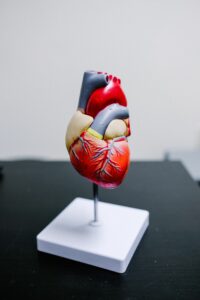Before I became a therapist, I had no clue how emotions worked. To me, emotions were this huge, abstract idea, something that just happened to me that I didn’t have much control over. In becoming a DBT clinician, though, the model of emotions thoroughly explained how emotions are a full system experience.
 Think about the last time you felt happy. Do you remember your thoughts? Maybe the world seemed a little brighter. You may have been relating to yourself and/or the world in a more positive way. Do you remember the way your body felt? You may have felt lighter, muscles relaxed, more energetic. Your body language and facial expressions most likely reflected happiness- you may have been standing up straighter, making eye contact, smiling, maybe even walking with more pep in your step. Your actions and behaviors probably lined up with happiness too- maybe you were more talkative, hugged more, maybe you were more generous or forgiving.
Think about the last time you felt happy. Do you remember your thoughts? Maybe the world seemed a little brighter. You may have been relating to yourself and/or the world in a more positive way. Do you remember the way your body felt? You may have felt lighter, muscles relaxed, more energetic. Your body language and facial expressions most likely reflected happiness- you may have been standing up straighter, making eye contact, smiling, maybe even walking with more pep in your step. Your actions and behaviors probably lined up with happiness too- maybe you were more talkative, hugged more, maybe you were more generous or forgiving.
Now think about the last time you were angry. Your thoughts were probably vastly different- you may have been ruminating on what made you angry, thinking about all the other times you’ve been wronged. Your muscles were probably tight, your breathing may have been labored, heart may have been beating harder. Your body posture probably showed anger- fists clenched, heavier steps, arms crossed. Your facial expressions probably showed anger as well, maybe with a scowl or squinted eyes. You may have yelled, thrown things, swore, pushed someone, slammed doors, or at least had the urge to do all these things. When we experience emotions, they impact our full body- thoughts, body sensations, posture, facial expressions, behaviors, urges, the words we speak, etc. When we experience certain emotions chronically, the change in our system in response to those emotions is more regular, leading to long-term impacts on our physical health. This article is going to look at how anxiety, when experienced chronically, can impact your long-term health.
 Everyone is going to experience anxiety from time-to-time. It’s a normal part of life. When you’re experiencing anxiety, your body thinks you are in danger and will prepare to manage some sort of threat. When that happens, blood flow to your brain increases, heart rate and breathing increase, blood flow to non-essential organs (like your digestive system) stops, and your muscles tense up. This is all done so that you can fight whatever is in front of you, run from the danger, or some other threat response like freeze. This type of reaction is helpful if you were to be mugged in a parking lot or something like that. Your body’s reaction would help you manage that threat. Unfortunately, we often experience the same symptoms in response to non-threatening situations like work deadlines, stress in relationships, finances, etc. In those situations, there’s nothing physically threatening us, but our bodies still react the same.
Everyone is going to experience anxiety from time-to-time. It’s a normal part of life. When you’re experiencing anxiety, your body thinks you are in danger and will prepare to manage some sort of threat. When that happens, blood flow to your brain increases, heart rate and breathing increase, blood flow to non-essential organs (like your digestive system) stops, and your muscles tense up. This is all done so that you can fight whatever is in front of you, run from the danger, or some other threat response like freeze. This type of reaction is helpful if you were to be mugged in a parking lot or something like that. Your body’s reaction would help you manage that threat. Unfortunately, we often experience the same symptoms in response to non-threatening situations like work deadlines, stress in relationships, finances, etc. In those situations, there’s nothing physically threatening us, but our bodies still react the same.
 When we experience anxiety, you may notice some of these physical symptoms:
When we experience anxiety, you may notice some of these physical symptoms:
- Increased breathing
- Increased heart rate
- Stomach pain
- Shakiness
- Hands and/or feet may feel cold
- Headache
- Fatigue
Having an anxiety disorder, like generalized anxiety, panic disorder, OCD, etc., means that your central nervous system is releasing stress hormones on a regular basis, increasing the frequency of the symptoms listed above. This can lead to heart problems like high blood pressure and heart disease. Like it’s mentioned above, when you’re experiencing anxiety, blood flow to nonessential organs like your digestive system stops. When you’re anxious chronically, this blood flow changes frequently and that frequent shift can lead to stomachaches, nausea, diarrhea, loss of appetite, and other digestive issues. There may also be a connection between IBS and anxiety disorders. Your immune system can be impacted as well- in your threat response, your body releases a ton of chemicals and hormones into your system. When you experience stress and anxiety occasionally, your body will return to baseline functioning when you’re no longer stressed. If you’re experiencing anxiety chronically, your body does not get the signal to go back to regular functioning. This can weaken your immune system, leaving your more susceptible to illness. Because of changes in breathing, anxiety can make asthma worse. Finally, anxiety and stress can cause your muscles to tense, which may cause muscle pain and sometimes even lead to injury.
 Stress and anxiety are a normal part of life and these emotions serve important functions. If they’re causing distress or experienced in disproportionate ways, though, they can have a negative impact on your life. These things can be managed, though, through a variety of ways. You can check with your doctor to see if medication can help manage symptoms. Individual and/or group therapy can be a good option to- to help you manage your stress responses, relate to yourself and the world differently, and learn skills to regulate your anxiety. Balanced eating and exercise can also help with anxiety, giving that excess energy a safe place to go.
Stress and anxiety are a normal part of life and these emotions serve important functions. If they’re causing distress or experienced in disproportionate ways, though, they can have a negative impact on your life. These things can be managed, though, through a variety of ways. You can check with your doctor to see if medication can help manage symptoms. Individual and/or group therapy can be a good option to- to help you manage your stress responses, relate to yourself and the world differently, and learn skills to regulate your anxiety. Balanced eating and exercise can also help with anxiety, giving that excess energy a safe place to go.
About the Author
Maria Mangione (she/her), M.A., LPCC is a licensed clinical counselor that specializes in dialectical behavior therapy. Maria works to help people develop the tools they need to develop trust in themselves and build their life worth living. Maria believes in having meaningful connections with her clients and believes that therapy and healing can be fun. Click Here to learn more about Maria’s experience and therapeutic style.

